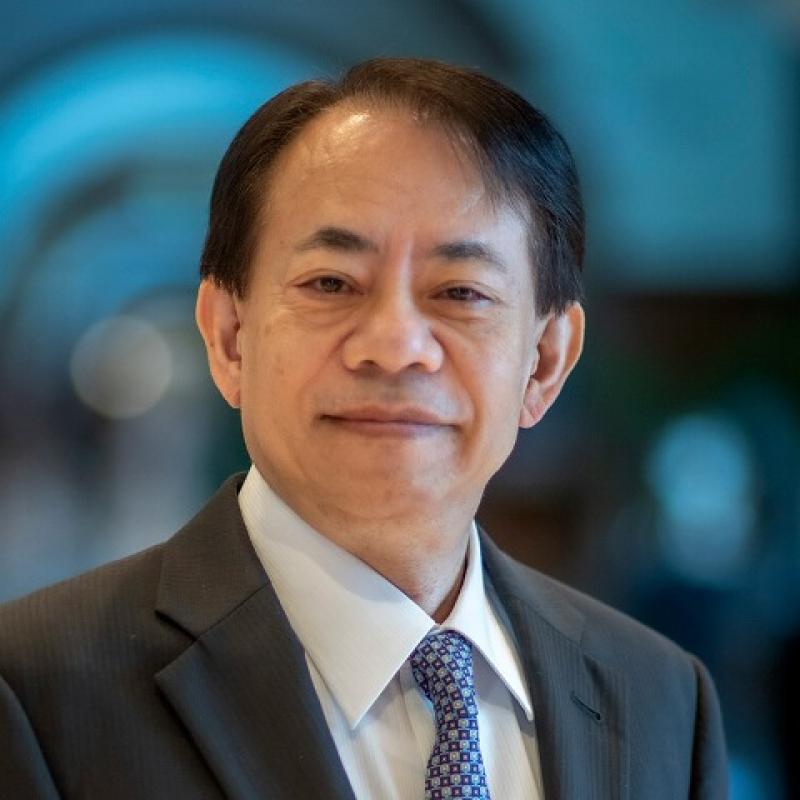- Body of Osman Hadi Returns to Dhaka From Singapore Late |
- Fakhrul condemns attacks on media, calls for unity, justice |
- 2 cops among 4 hurt in clash outside Indian Assit H.C. in Ctg |
- Inqilab Moncho urges people to avoid violence |
- Hadi’s death: Prothom Alo, Daily Star offices set afire |
“ADB will efficiently use its newly expanded lending capacity”

“ADB will efficiently use its newly expanded lending capacity”
Tbilisi (Georgia), May 05 - Asian Development Bank (ADB) President Masatsugu Asakawa on Sunday said ADB will remain equipped to support people of the region in a "rapidly changing global and regional landscape" with their focus on key directions.
“ADB’s new operating model will continue to emphasize climate action and private sector development. To advance our shifts under the new operating model, and ensure accountability, we will also introduce new ways of working,” he said.
These include new digital tools, regional work programs, and corporate performance indicators, he added.
The ADB President was addressing the business session of the Board of Governors at the 57th ADB Annual Meeting here in the Georgian capital.
Chair of the Board of Governors Lasha Khutsishvili and Bangladesh Finance Minister AH Mahmood Ali, among others, were present.
This year, Asakawa said, ADB will use the Strategy 2030 midterm review, and the Corporate Results Framework for 2025-2030, to learn and continue to evolve support to clients.
ADB will "effectively and efficiently" use its newly expanded lending capacity to support key priorities, along with their members most in need, he said.
"We will finalize the fourteenth replenishment of the Asian Development Fund. This will allow us to support the region’s poorest and most vulnerable countries until 2028," said the ADB President.
He said the outlook for Asia and the Pacific remains solid.
However, the ADB President said, over the past year, developing member countries (DMCs) have confronted the growing challenges of climate change, conflict, food insecurity, and increased debt.
The climate crisis in particular threatens the region’s development.
2023 was the warmest year on record. Last year also saw disasters, many from natural hazards, affect about 44 million people in Asia and the Pacific.
ADB’s major capital management reforms from the past year unlocked up to $100 billion in new lending capacity for the next decade.
Similarly, the new operating model (NOM) has enabled the lender to deliver better, faster, and more tailored support to developing member countries.
"More broadly, our performance last year demonstrated strong progress in areas that are key to achieving our priorities," said the ADB President.
ADB Operations in 2023
ADB committed $23.6 billion in loans, grants, guarantees, equity investments, and technical assistance in 2023, a 15% increase from the previous year. This included a record $9.8 billion in climate finance from ADB’s own resources, representing 41.5 % of its total commitments.
ADB’s Private Sector Operations Department committed $3.8 billion for non-sovereign operations, with a significant increase in lending for frontier economies. ADB met its corporate financing targets for health, gender, and education, and it is on track to meet the ambition for food security financing.
“Asian Development Fund commitments reached $721 million in 2023, and we project this to increase to $865 million in 2024. ADB also introduced favorable concessional lending terms to small island developing members,” the ADB President said.
ADB launched the Innovative Finance Facility for Climate in Asia and the Pacific, a landmark guarantee mechanism to scale up the region’s climate investment.
"At the 28th Conference of the Parties (COP28) in Dubai, we unveiled our Climate Change Action Plan for 2023-2030," said the ADB President.
"This will guide support to our DMCs in achieving their Nationally Determined Contributions and mobilize finance to help countries transition to low-carbon and climate-resilient economies," he added.
The ADB President said ADB looks forward to its continued collaboration to achieve a prosperous, inclusive, resilient, and sustainable Asia and the Pacific.

